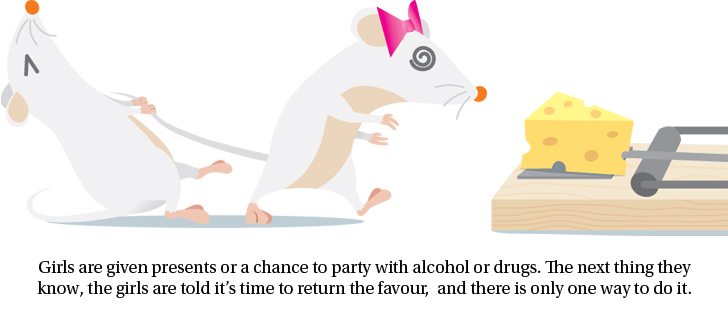Teachers can play an important support role for students battling substance abuse simply by listening to them.
Allan Kehler, speaking at the National Congress on Rural Education in Saskatoon last week, suggested starting the conversation with, “I don’t mean to pry, but I just wanted to let you know I am concerned.”
“The most important thing we can provide is our ears,” he told teachers.
“Open your door and when they enter, just listen and acknowledge the courage it took to enter.”
Read Also

Nutritious pork packed with vitamins, essential minerals
Recipes for pork
Teachers should know their students as people, look beneath their actions, create an environment of trust, safety and compassion and be aware of available resources, Kehler said.
“Sometimes academics have to come second,” he said.
Kehler, an instructor at the Saskatchewan Indian Institute of Technology who wrote Stepping Out From the Shadows, knows first-hand the challenges for young people with addictions.
He grew up battling mental illness and addictions in a Saskatchewan town of less than 300.
Grade 11 was when things got worse for him, a time when not one teacher approached him.
At his lowest point, he was given one month to live if he didn’t make a change.
He urged teachers to get to know students beyond the classroom and maintain an open door policy with them.
“If you feel there’s a problem, there probably is,” said Kehler, who encouraged teachers to trust their instincts.
Kids acting out are in pain, he said.
Warning signs include changes in peer groups and activities, mood swings, deterioration of physical appearance, delayed speech or confusion, glassy, bloodshot eyes and unusual smells on the breath or clothing.
Young people have a problem if they use drugs alone, if they think about them regularly, if booze is needed to have a good time in social situations or if they feel guilty about using drugs.
Kehler said there are fewer resources in rural regions, but it only takes one person to create a group such as a 12 step program.
“When you have the courage to start talking about it openly, others will be empowered to do the same. You can really become a leader,” he said.
“Compassion changes things. Talking leads to healing.”
In his classroom, he starts each day by having students pick two emotions from a feelings chart. That allows him to check in on what’s going on in everyone’s life. Talking circles can also encourage discussion.
Oxycontin and fentanyl use has been in the news recently, but Kehler said users will seek out what’s locally available. Marijuana and alcohol remain among the most commonly used.
“With addictions, it’s about numbing and escaping from a painful reality,” he said.
Kehler said drug use affects the entire classroom because many are unsure what to do or how to approach the affected person.
“If we can allow them to feel good about themselves, then there’s less incentive to turn to drugs,” he said.
Contact karen.morrison@producer.com

















